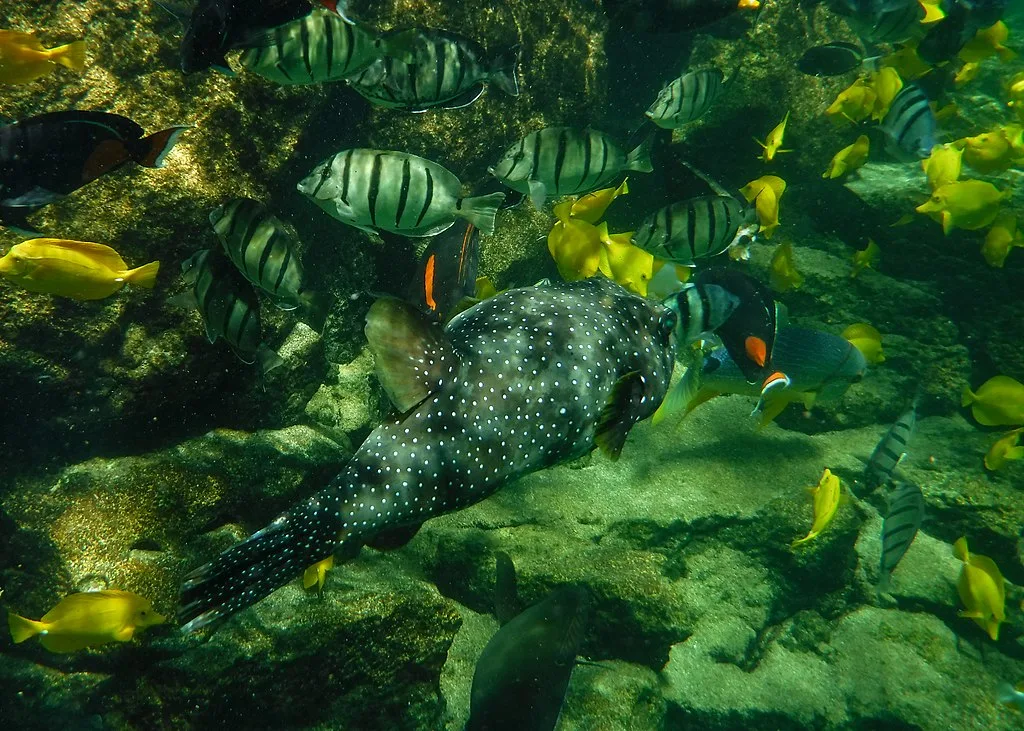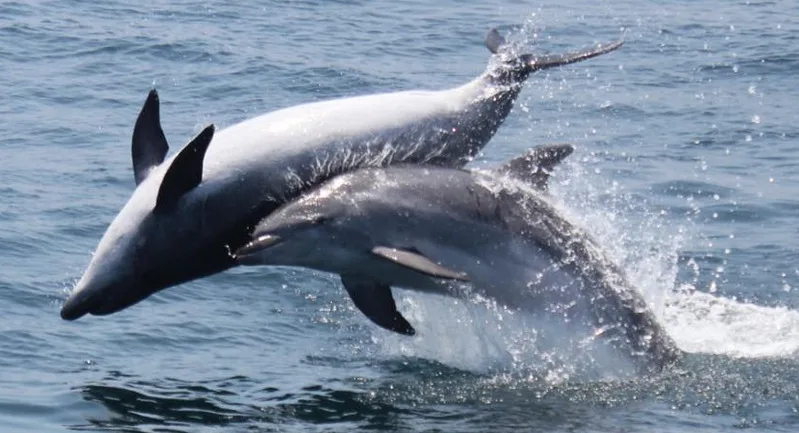Welcome to the mesmerizing world of the Gulf of Kutch Marine National Park, a marine sanctuary like no other, nestled along the captivating coastline of Gujarat, India. If you’re a nature enthusiast with a love for marine life and coastal ecosystems, this park is a must-visit destination. In this comprehensive guide, we embark on an awe-inspiring journey to uncover the historical significance, incredible marine biodiversity, thrilling underwater encounters, travel logistics, accommodations, and everything you need to know about the Gulf of Kutch Marine National Park.
A Glimpse into History
Before we dive into the enchanting marine realm of the Gulf of Kutch, let’s take a brief journey into its historical significance. Established in 1982, this marine national park holds a special place in the conservation of India’s coastal and marine treasures.
A Salt Pan Transformation
The park’s history is tied to its transformation from salt pans into a protected area. The tireless efforts of conservationists and the local community have rejuvenated the ecosystem, allowing marine life to thrive. The transformation from an area used for salt production to a thriving marine sanctuary is a testament to the power of conservation.
Marvelous Marine Life
As you venture into the Gulf of Kutch Marine National Park, you’ll be surrounded by a diverse marine paradise. The park’s waters teem with an astonishing variety of marine species. Here are some highlights:
Coral Reefs

The park boasts vibrant coral reefs that serve as vital habitats for numerous marine organisms. Snorkeling and diving enthusiasts can explore these underwater gardens, which are home to colorful corals and a myriad of fish species. These coral reefs are a testament to the park’s thriving marine ecosystem and its role in conserving India’s underwater treasures.
Sea Turtles

The Gulf of Kutch is a crucial nesting ground for Olive Ridley sea turtles. Witnessing these gentle giants lay their eggs and watching hatchlings make their way to the sea is an unforgettable experience. The park’s role in sea turtle conservation is a remarkable achievement, and it offers a unique opportunity to observe these ancient mariners up close.
Marine Birds

The park is a haven for marine birds, with species like the Great Crested Tern, Lesser Crested Tern, and the charismatic Indian Skimmer gracing its shores. Birdwatchers will be in awe of the avian wonders that call this park home. The presence of these birds is a testament to the park’s importance as a coastal ecosystem that supports both marine and terrestrial life.
Underwater Adventures Await
Now that you’ve had a glimpse of the park’s remarkable marine life, let’s dive into the thrilling underwater experiences that await you in this aquatic sanctuary.
Snorkeling and Diving

Snorkeling and diving are among the best ways to explore the park’s underwater wonders. Guided excursions allow you to get up close with colorful corals, schools of fish, and perhaps even encounters with sea turtles. These underwater adventures offer a unique perspective on the Gulf of Kutch’s marine biodiversity and the importance of protecting these fragile ecosystems.
Dolphin Safaris

The Gulf of Kutch is home to playful dolphins. Join a dolphin safari to witness these intelligent marine mammals leaping and frolicking in the waves. The sight of dolphins in their natural habitat is sure to bring joy. These safaris also highlight the need for responsible wildlife tourism to protect these charismatic creatures and their habitat.
Mangrove Exploration

Explore the intricate mangrove ecosystems within the park. These lush coastal forests serve as crucial breeding grounds for marine life and provide a serene environment for nature enthusiasts. Mangrove exploration is not only a fascinating experience but also an opportunity to learn about the vital role these ecosystems play in coastal protection and biodiversity conservation.
Getting There: Your Journey Begins
To embark on this extraordinary marine adventure, you need to plan your route to the Gulf of Kutch Marine National Park. Here’s how you can reach this coastal paradise:
By Air
The nearest airport to the park is Bhuj Airport in Gujarat, which is well-connected to major cities in India. From there, you can hire a taxi or take a bus to reach the park. The drive from the airport to the coastline offers scenic views of the Gujarat landscape. The accessibility of the park by air highlights its importance as a tourist destination and a center for marine research.
By Rail
The nearest railway station to the park is Bhuj Railway Station, approximately 60 kilometers away. After arriving at the station, you can hire a taxi or take a bus to reach the park. The train journey to Bhuj provides glimpses of the picturesque Gujarat countryside. The railway connection to the park underscores its significance as a destination for travelers seeking unique natural experiences.
By Road
If you prefer a road trip, you can drive to the Gulf of Kutch Marine National Park or take a bus. The park is well-connected by road to nearby towns and cities in Gujarat. The drive along the coastline offers breathtaking vistas of the Arabian Sea. The park’s accessibility by road promotes ecotourism and highlights the need for responsible travel practices to protect the fragile coastal ecosystem.
Where to Rest Your Weary Head
After a day of marine exploration, you’ll want a comfortable place to relax. The Gulf of Kutch Marine National Park offers limited accommodation options, primarily in nearby towns:
Coastal Resorts
Several coastal resorts and hotels in nearby towns like Mandvi and Bhuj offer comfortable accommodations. These options provide modern amenities and are perfect for travelers seeking a blend of comfort and marine adventure. Staying in these resorts also supports the local economy and highlights the importance of sustainable tourism.
Eco-friendly Retreats
For those looking for a more eco-friendly
experience, there are eco-retreats and nature camps in the vicinity of the park. Staying at these retreats allows you to immerse yourself in the natural beauty of the region. These eco-friendly accommodations promote responsible tourism and demonstrate the importance of conserving fragile ecosystems.
Best Time to Visit
The best time to visit the Gulf of Kutch Marine National Park is during the winter months, from October to March. The weather is pleasant, and marine life is more active during this period. The scorching summer heat can be harsh, making it less ideal for travel. Visiting during the recommended months ensures a comfortable and memorable experience.
Unforgettable Experiences Await
Now that you’ve gathered all the practical information, let’s explore the experiences that will make your trip to the Gulf of Kutch Marine National Park truly unforgettable:
Snorkel with Sea Turtles

A snorkeling excursion with sea turtles is a once-in-a-lifetime experience. Witnessing these ancient creatures gracefully glide through the water is a magical encounter. It also highlights the importance of marine conservation efforts to protect these endangered species.
Coral Garden Exploration
Dive into the vibrant coral gardens of the park. The kaleidoscope of colors and the diversity of marine life will leave you in awe of the underwater world. Exploring these coral gardens underscores the need for coral reef protection and sustainable tourism practices.
Sunset by the Coast
End your day with a serene sunset by the coast. The changing hues of the Arabian Sea as the sun sets create a breathtaking spectacle. Watching the sunset also provides a moment of reflection on preserving natural beauty for future generations.
Fascinating Trivia
Before we conclude our marine journey through the Gulf of Kutch Marine National Park, here are some fascinating trivia tidbits that will deepen your appreciation for this coastal wonder:
- The park is part of the larger Gulf of Kutch Biosphere Reserve, recognized by UNESCO for its ecological importance. This designation highlights the park’s global significance in biodiversity conservation.
- It is one of the few places in India where you can witness coral reefs in their natural habitat. The presence of coral reefs emphasizes the need for conservation efforts to protect these fragile ecosystems from climate change and pollution.
- The park’s unique mix of marine and terrestrial ecosystems makes it a biodiversity hotspot. This biodiversity hotspot designation emphasizes the need for ongoing research and conservation efforts to protect the park’s unique ecosystems.
In conclusion, the Gulf of Kutch Marine National Park is a marine marvel, offering a window into the rich coastal and marine biodiversity of India. From its historical significance to its captivating marine life, there’s something for every nature enthusiast to cherish. So, pack your snorkeling gear, plan your journey, and prepare for an adventure that will leave you with lasting memories of the marine wonders of the Gulf of Kutch.
